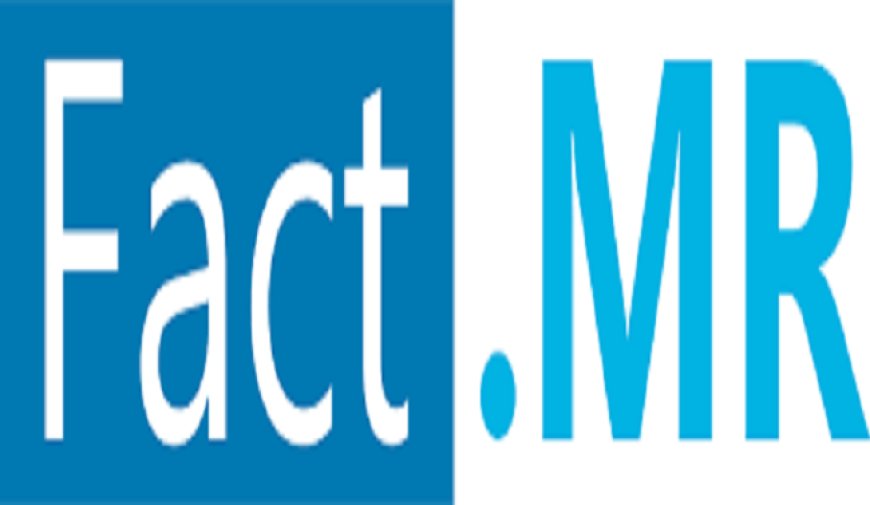Energy-Efficient Cooling Fans Gain Traction Across Industrial Applications
The global adaptive cooling fan market is expected to be valued at US$ 51.2 billion in 2023 and is projected to reach US$ 69 billion by 2033, growing at a compound annual growth rate (CAGR) of 3% during the forecast period.

The global adaptive cooling fan market is expected to be valued at US$ 51.2 billion in 2023 and is projected to reach US$ 69 billion by 2033, growing at a compound annual growth rate (CAGR) of 3% during the forecast period.
The adaptive cooling fan market refers to the segment of cooling technology that uses advanced systems to adjust fan speed and airflow based on the surrounding temperature and environmental conditions. These cooling fans are designed to optimize energy consumption while maintaining effective temperature control in various applications. Typically found in industries such as automotive, electronics, industrial machinery, and residential spaces, adaptive cooling fans offer a more efficient alternative to traditional fans. They are often integrated with sensors or smart controls that adjust their operation depending on real-time temperature data, improving both performance and energy efficiency. With growing concerns about energy consumption and environmental impact, adaptive cooling fans are increasingly becoming the go-to solution for temperature regulation across multiple sectors.
Market Insights
The adaptive cooling fan market is gaining momentum due to increasing consumer and industrial demand for energy-efficient and environmentally friendly solutions. These fans can be tailored to specific needs, allowing for better control over temperature without the constant need for manual adjustments. Additionally, the rise of smart technologies, where devices can communicate and adjust autonomously, is a significant driver of the market. For example, in the automotive sector, adaptive cooling fans are used to regulate engine temperatures, ensuring optimal performance and preventing overheating. In the residential sector, these fans are increasingly integrated into smart home systems, where they can be automatically adjusted based on the house's internal temperature or the user's preferences. As more industries move towards automation and smart technologies, the demand for adaptive cooling solutions is expected to grow steadily.
Market Outlook
The outlook for the adaptive cooling fan market is positive, with continued innovation and adoption anticipated in the coming years. With advancements in smart technologies and the increased use of sensors, the efficiency of these fans is expected to improve further, making them even more attractive for industries looking to reduce energy consumption and costs. Additionally, growing concerns about climate change and the need for sustainable solutions are expected to drive further market growth. By providing a way to optimize energy usage while maintaining ideal operating conditions, adaptive cooling fans present a viable solution for businesses and households looking to lower their carbon footprint. As awareness of these benefits increases, the market is likely to expand across various regions, particularly in developing countries where industrialization and consumer demand for smart home products are on the rise.
List of Key Companies Profiled in The Report
- AMETEK, Inc.
- Denso Corporation
- Flexxaire Inc.
- Horton Holding, Inc.
- SPAL Automotive Srl
- Valeo SA
- Toshiba Electronic Devices & Storage Corporation
- Others
Recent Industry News
In recent news, several major players in the cooling technology sector have made strides in improving the functionality and efficiency of adaptive cooling fans. Manufacturers are investing heavily in the development of fans with enhanced smart capabilities, such as integrating sensors that can detect temperature changes in real-time and adjust fan speed accordingly. This has led to the introduction of more energy-efficient and quieter models, which are becoming increasingly popular in both residential and commercial settings. Moreover, the integration of adaptive cooling fans into electric vehicles has been gaining traction as automakers focus on optimizing battery life and overall vehicle performance. In the consumer electronics industry, there has been a surge in demand for adaptive cooling systems in high-performance devices like gaming PCs and data centers, where managing heat is crucial for maintaining optimal performance.
Notable Developments
Notable developments in the adaptive cooling fan market include the introduction of fans with improved noise-reduction features, higher durability, and greater energy efficiency. Companies are increasingly using materials such as thermally conductive metals and advanced plastics to design fans that can withstand high temperatures and provide longer service life. Additionally, the market is seeing the development of adaptive cooling fans that are compatible with IoT (Internet of Things) devices, enabling users to monitor and control their cooling systems remotely. This development is particularly beneficial for the smart home sector, where consumers are increasingly seeking ways to integrate their home appliances into unified, energy-efficient systems. The automotive sector is also witnessing innovations, such as fans that dynamically adjust airflow based on driving conditions and temperature fluctuations, helping to optimize vehicle performance and energy use. These notable advancements continue to push the boundaries of what adaptive cooling fans can achieve, offering both businesses and consumers more efficient and cost-effective solutions.
Competitive Landscape
The global adaptive cooling fan market is fragmented, with an increasing number of manufacturers competing for greater market share. Companies are seizing opportunities to accelerate growth through new product innovations and expanding their sales channels.
In September 2021, MAHLE introduced a new battery cooling system designed for faster electric vehicle (EV) charging. The system uses an electrically nonconductive coolant to circulate within the cells, significantly reducing the battery's maximum temperature during charging and ensuring more even temperature distribution.
In April 2021, XING Mobility and Castrol announced a partnership to enhance XING Mobility's immersion cooling battery technology, providing unprecedented power and safety for the growing EV market. This collaboration will leverage Castrol's advanced thermal management fluid to optimize performance.












